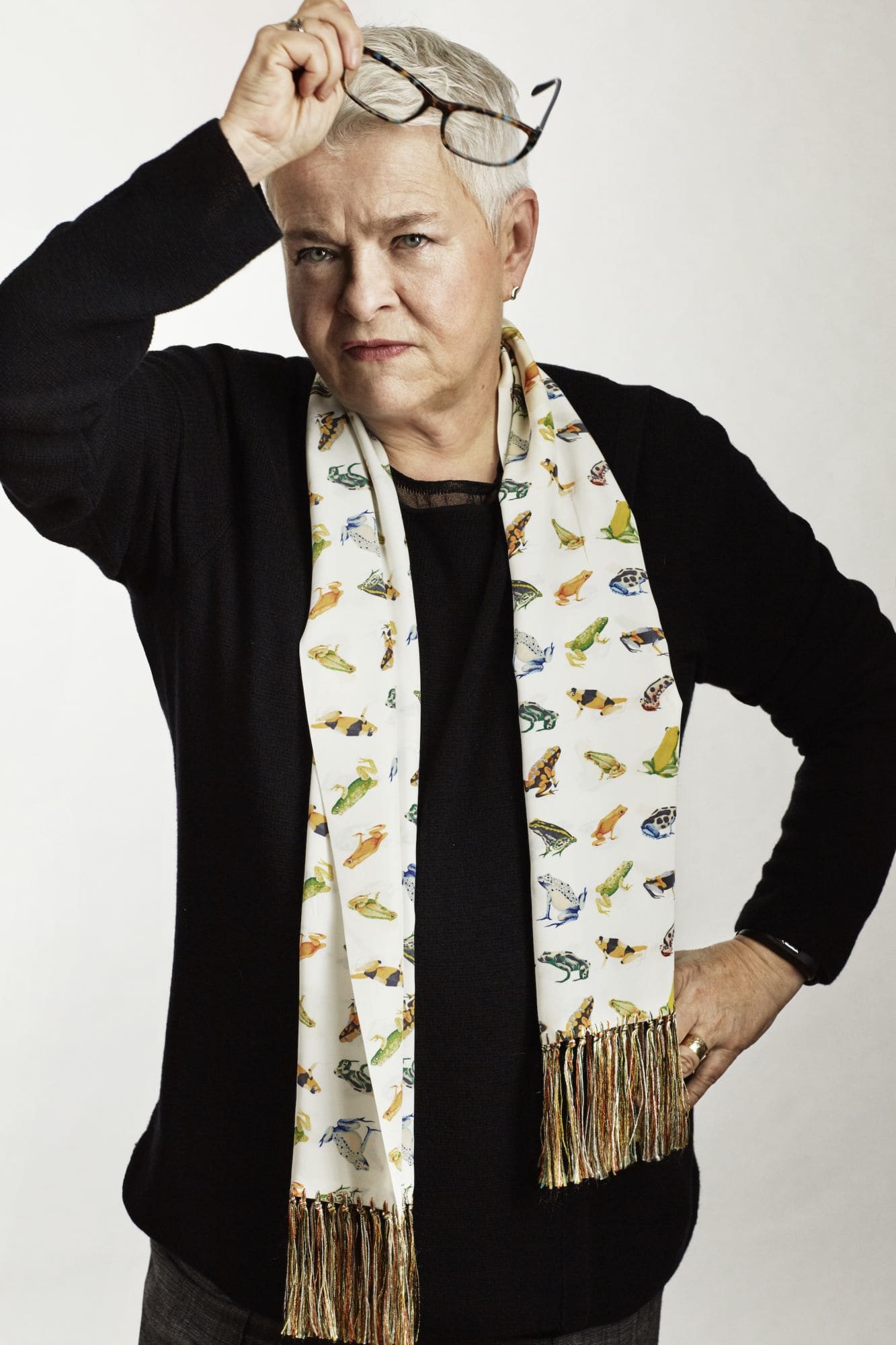Interview
Indecent Playwright Paula Vogel In Convo with Director Sheila Daniels
An Urgent Truth
Indecent Playwright Paula Vogel and Director Sheila Daniels talk women in arts, the role of actors, and a trip to Poland
Sheila Daniels: My first question is one I’ve wanted to ask you for some time now, in relation to the miniscule amount of writing I have been able to find about the women in Indecent. Why is there such a lack of information in the world about women? How has that affected your writing about women?

Director Sheila Daniels. Photo by John Ullman.
Paula Vogel: We have to leap over a certain step that I feel like women writers are held to. Which is: I’m creating a play, so it’s okay that it’s fiction. Very early on in this process, I had to realize that I’m going to have to make up some of these women characters. The fact is, this [Indecent] is based on a true story. It’s just not based on true women characters because we simply don’t have access to that information.

Playwright Paula Vogel. Photo by guzman@foureleven
SD: It’s a play! If you look at any good movie or play that’s about a historical event, if it had no part in the artist’s imagination, it would not bring the audience into the story as well. It’s personalization that makes stories really exciting.
PV: That’s right. I think as a woman, I’ve been held to a veracity test, as if it’s not enough to tell emotional truth. You have to tell historical truth. Therefore, it has to be a history, which I’m not interested in writing. But I wanted the women characters to feel absolutely as truthful and lifelike as, say, Sholem Asch. And this is a longer conversation that dates back for me to the 1970s. As I’ve said: Whenever a male character enters the stage, he’s trailing clouds of Hamlet. But when a woman character treads onstage, she is trailing clouds of Ophelia or Gertrude. And that’s a very different legacy. Women characters exist in the canon to be functional only, and not to be three-dimensional.
We have a lifetime of working with actresses – incredible, complex women who have peopled our stages. The only person that’s going to bring your writing to life is going to be the actors. So this is a play that really bets on the theatrical process. I’m betting on my collaborators. I’m betting on you. To make it feel like an urgent truth. And I feel it is an urgent truth.
SD: It is, absolutely. So I’ve read a lot and we’ve talked a lot about the whole creation process. For you, I’m wondering how the piece surprised you in the process of making it. Were there moments of “I didn’t see that coming”?
PV: Each character sort of takes me by the hand and surprises me. I don’t do that kind of plotting on an outline. I follow them in the scenes, and they lead me where they go. When I talk about the fact that actors really kind of write the characters – I’ve learned you have to tailor the role to the actors.
SD: Yes, it definitely was a wonderful audition process. In this one, it really was who was able to step into the skin without much help from me.
PV: The connective tissue, always. It’s you translating it into three-dimensionality.
SD: Absolutely. You’ve talked about this before, but what’s sticking with you right now the most, in terms of how Indecent is uniquely meaningful to you?
PV: It’s really me looking at my Jewish heritage. It’s really me following through on something my brother Carl said when he was dying of AIDS. While he still had his sight, he started reading Holocaust material and he said, “Do you realize one half of our family has always been killing the other half of our family as far back as we can trace?” You know, I’m German-Catholic, German-Protestant, German-Jewish, Russian-Jewish, Spanish, and French-Catholic. So, seriously, he’s right! That’s the kind of thing that the second you hear it, it’s burrowing deep under your skin. So I think in a way, this is the play that’s working that out.
SD: For many of us, the first play that we knew of yours was Baltimore Waltz, and it’s so moving to hear you connect this play to that play in so many ways.
PV: Here’s the thing that I feel that as women we may not always get the opportunity early in our careers to do, and I’d love to hear you speak to this. In order to get a play produced when I was in my late 30s, I had to bring a world onstage that could be produced for less than $1,000 and with free actors.
SD: Absolutely, and still, to this day, so much of that work is the work I’m most proud of.
PV: Right. And now, we’re finally allowed to open up the camera lens and we’re allowed a wider screen shot. Towards the very end of our careers, we’re allowed, instead of playing a duet, to use an orchestra. Hopefully, Indecent now allows me to look at a larger, more ambitious stage. And, I have not yet had the privilege of working with a director who’s done so much research!
SD: You mean going to Poland? I felt like I had no choice, you know? I definitely felt – especially not being Jewish myself – the need to understand on a more visceral level. And then going to Auschwitz and Birkenau was just leveling.
SD: So because we’re both teachers and we both love teaching, what’s one piece of advice you’d give to a theater artist just entering the workforce?
PV: Don’t wait for permission.





